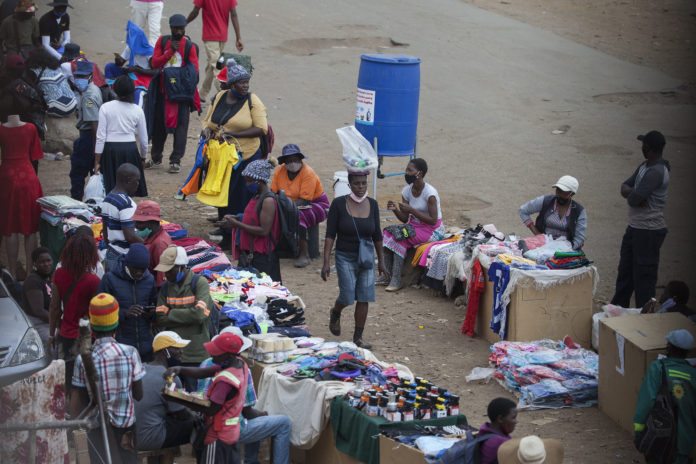Harare, September 9 — A delegation from South Africa’s governing African National Congress party has evaded meeting Zimbabwe’s opposition political parties and civil societies which anticipated to brief the regional superpower about this country’s mounting political and economic crisis.
This is the second time this year officials from South Africa have dashed engaging opposition parties over the ballooning crisis in Zimbabwe.
Last month, Zimbabwe’s immediate Southern neighbor’s government delegation was in the country, but only managed to meet the ZANU-PF government before it left without meeting the opposition parties.
Barely a month later, through its governing ANC, South Africa has repeated the snub of Zimbabwe’s opposition parties and civil societies.
“We have received requests from other stakeholders namely Dr. Simba Makoni, the Zimbabwe African People’s Union (ZAPU), Movement for Democratic Change Alliance (MDC Alliance), US Ambassador, but we have jointly decided with ZANU-PF that we will come back and meet with these organizations,” said Ace Magashule, secretary-general of South Africa’s ANC.
Before even the ANC delegation landed in the country, Zimbabwe’s governing ZANU-PF party was already adamant the meeting would only take place between itself and the former.
“Following inquiries from various quarters and our friends from the media in particular on the purpose of this meeting, ZANU-PF wishes to make it categorically clear that this is a meeting between ZANU-PF and the ANC delegation only,” said a statement from ZANU-PF prior to the arrival of the ANC delegation.
But, all the same, South African President Cyril Ramaphosa had deployed the governing ANC officials to meet all concerned parties in Zimbabwe over the country’s deteriorating political and economic situation.
Instead, come Wednesday meeting between South Africa and Zimbabwe ruling parties, among other things, they agreed to engage in programs to empower youths and women in their countries while they also agreed to convene and meet regularly to discuss issues of mutual concern and interest.

